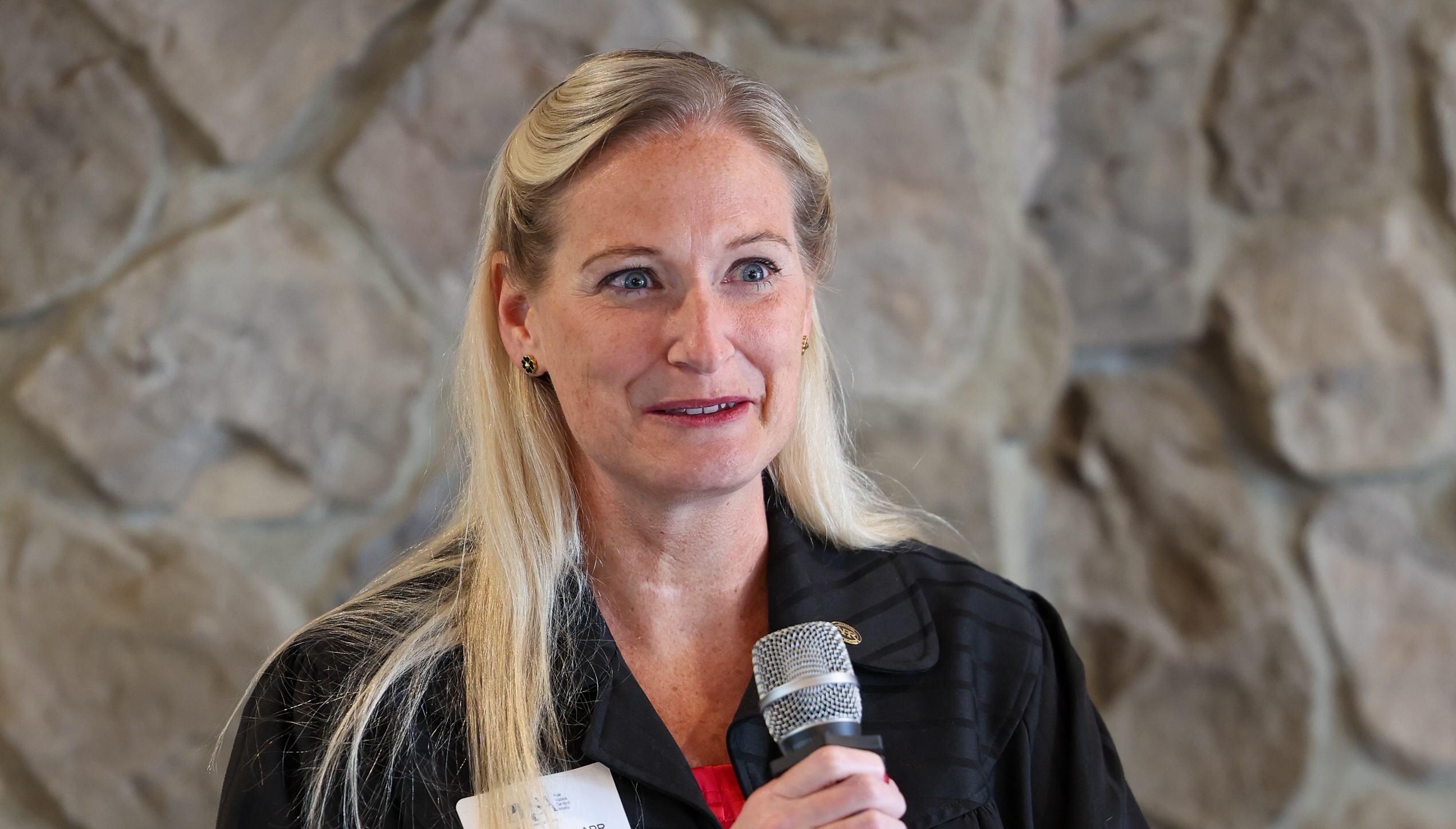Jennifer Kramer Advocates for Mental Health Awareness and Impactful Comms
By John Elsasser
June-July 2024
In this Q&A with Editor-in-Chief John Elsasser, Kramer shares insights on her passion for PR, the multifaceted nature of her current role, and her courageous journey of opening up about mental health to inspire and support others in the profession.
You were a PRSSA member at Kent State University. Were you always interested in a career in PR/comms?
My passion for PR and communications was ignited early in high school when I was deeply involved with the school newspaper, eventually serving as editor-in-chief. This experience fueled my love for storytelling and strategic communication.
Although I began at Kent State University as a journalism major, my trajectory shifted when I took an introductory mass communication course that featured public relations. I was captivated by how PR seamlessly integrates media, communication and strategy.
Joining PRSSA felt like a natural progression. The community at Kent State refined my skills and cemented my ambition to pursue a career in PR, driven by the power to craft impactful narratives and forge meaningful connections.
You’ve had the opportunity to work in various sectors — corporate, nonprofit, agency, county government and higher education. What do you enjoy most about your PR/comms work, regardless of the industry?
I deeply value the role of PR and communications in facilitating understanding and fostering relationships across various sectors — be it corporate, nonprofit, agency, government, or academia. My work consistently bridges communication gaps between organizations and their diverse audiences, which is incredibly rewarding.
Additionally, my love for writing intertwines with my professional duties; crafting compelling narratives fulfills a lifelong passion and makes each project immensely enjoyable.
Furthermore, assisting individuals and organizations in advocating for meaningful causes greatly amplifies the impact of our efforts, adding a profound sense of fulfillment and purpose to my work.
What does your role entail today at the Association for Materials Protection and Performance (AMPP)?
At AMPP, I lead external communications and public relations to elevate the materials protection and coatings industries and underscore our key priorities.
My role involves enhancing our organizational reputation through targeted outreach to members, media, policymakers and industry leaders. I manage strategic initiatives, PR and social media campaigns, and media relations while developing our spokespersons’ media skills, managing crisis communications, and supporting our CEO and officers at public events.
These efforts aim to strategically shape public opinion and increase awareness of AMPP’s brand and its critical missions.
The transition has posed challenges regarding remote work, particularly in maintaining the immediacy and spontaneity of team interactions crucial for swift decision-making and team cohesion. However, it also offers considerable rewards, including increased flexibility and the opportunity to connect with global colleagues and stakeholders. This enhances our collective perspective and allows us to be more inclusive and responsive in our communication strategies.
Moreover, working from various locations supports a work-life balance, leading to greater productivity and job satisfaction, which is essential for long-term commitment and success in our demanding field.
May was Mental Health Awareness Month. As chair of PRSA’s East Central District, you opened up about your journey with depression and anxiety in your monthly letter to members. What inspired you to take the bold step of sharing your personal story?
The decision to open up about my struggles with depression and anxiety in my monthly letter to PRSA members was deeply influenced by a desire to destigmatize mental health issues within our professional community.
My inspiration was twofold: first, to convey that experiencing mental health challenges does not diminish one’s professional capabilities or personal value. More important, I wanted to share a message of hope and resilience, underscored by my daughter’s journey as a suicide survivor.
Her experience has profoundly shown that there is light and success even after the darkest times. By sharing our stories, I hoped to emphasize the importance of support, understanding, and professional mental health care, reassuring others that recovery is possible and empowering.
This openness, I believe, can foster a more compassionate and supportive workplace where people feel safe to speak about their struggles and seek help without fear of judgment.
Your letter also cited statistics highlighting the prevalence of mental health issues within the PR profession. In your opinion, what are some of the underlying factors contributing to such high levels of mental health issues among PR professionals?
The PR profession often involves high stress, tight deadlines, and constantly adapting to new technologies and shifting media landscapes, which can contribute to mental health challenges. Additionally, the expectation to always be “on” and professionally polished can prevent individuals from seeking help or expressing vulnerabilities.
Your call to action includes promoting open conversations about mental health in the workplace. How do you envision these conversations taking place, and what barriers might need to be overcome to facilitate them effectively?
Open conversations about mental health in the workplace begin with leadership. Leaders need to create a judgment-free environment that encourages these discussions. Effective measures might include regular mental health check-ins, wellness training, and clear support channels. Overcoming stigma and fear of professional repercussions demands ongoing effort and education.
What role do you believe organizations and individuals should play in creating a culture of support and understanding around mental health, both within the workplace and beyond?
Both organizations and individuals play essential roles in fostering a supportive mental health culture. Organizations must enact policies that enhance mental wellness, including resources like employee assistance programs and mental health days. Individuals should engage in open dialogues, support colleagues, and advocate for systemic changes prioritizing mental health.
What messages would you like to convey to PR professionals who may be struggling with their mental health but feel unable to speak up or seek support?
To those struggling, know that your health is paramount, and it’s OK to seek support. You are not alone; your struggles do not define your professional worth or capabilities. Many have walked this path and found ways to manage their conditions successfully. Encourage dialogue, seek professional help, and utilize available resources. There is strength in vulnerability, and your well-being is worth advocating for.
This spring, the Advocacy Committee for PRSA's East Central District conducted a Mental Health Survey. View the results here.



